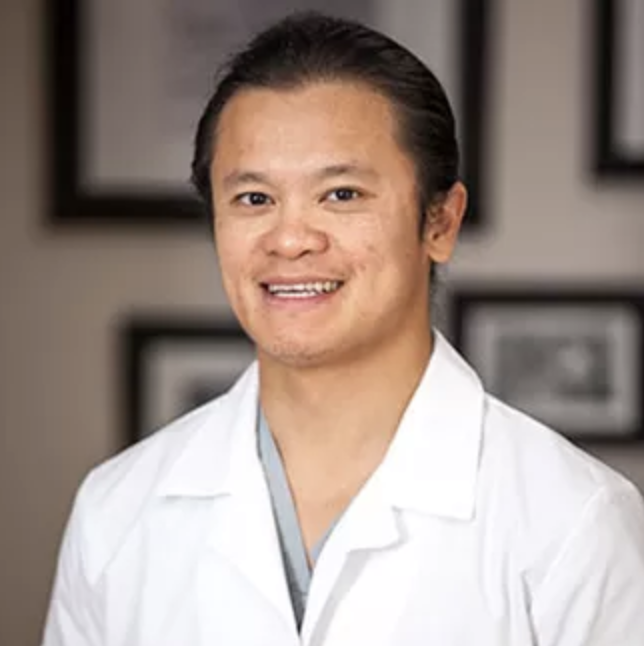It’s important to understand the differences between the dental specialists that keep your smile looking and feeling its best. While a general dentist is responsible for regular dental exams and cleanings, other dental specialist types have an important role in oral care.
Types of Dental Specialists
Dental specialists receive additional training in a specific dental specialty, including endodontics, oral surgery, orthodontics, and more. Here we will discuss six of the most common types of dental specialists when it comes to caring for your oral health.
#1 Endodontist

An endodontist is responsible for root canals. Inside our teeth are passageways known as canals. Here you’ll find blood vessels, pulp, and nerves, the latter is what usually causes pain in the tooth. When the tooth pulp becomes inflamed, or infected, or if the interior of the tooth is damaged and beginning to decay, a general dentist will refer you to this specialist.
An endodontist will diagnose and treat any problems within this area of a tooth. They can not only diagnose tooth pain and determine its cause but also perform root canal therapy on your teeth. They use cutting-edge dental technology like digital X-rays to be able to see detailed pictures of your teeth and gums. This helps them to make the best diagnosis.
When Should I See An Endodontist?
When you’re experiencing sensitivity to hot or cold, tooth pain, swelling around your teeth or on your face, or have injured your tooth, it’s important to visit an endodontist.
#2 Oral/Maxillofacial Surgeon
These dental specialists treat issues related to the hard and soft tissues of the mouth, face, or jaw. Typically, they perform more complex procedures that require more extensive sedation. This is because, besides anesthesiologists, they are the only healthcare professionals allowed to administer sedation on their own.
When Should I See An Oral or Maxillofacial Surgeon?
You may want to see an oral surgery when you require a specialized procedure like a wisdom tooth extraction, jaw surgery, or dental implant procedure.
#3 Periodontist

This dental specialist is trained in the diagnosis, treatment, and prevention of diseases that affect the gums or other structures that help support your teeth. They are gum disease experts and can easily recognize and treat the early stages before they advance to more detrimental results such as gum recession or jawbone deterioration. They also can perform minor surgeries such as gum grafting, periodontal pocket procedures, or crown lengthening.
When Should I See a Periodontist?
The most common reasons to see a periodontist are tooth extraction, bone grafting to help repair bone loss after tooth removal or gum disease, tissue sculpting, and for tissue sculpting. If you have abscesses or other bumps on your gums, a periodontist can help treat it before it progresses to a more serious infection that may require tooth removal.
#4 Orthodontist
This dental specialist understands where the teeth and jaw should be positioned. They use clear aligners or metal or invisible braces to help guide the teeth to where they should be. They also can help those with crossbites, underbites, or overbites caused by a jaw that is out of alignment, whether from TMJ or an injury.
When Should I See An Orthodontist?
You should see an orthodontist when you want to fix bite issues associated with your jaw. When the jaw is misaligned, it is most likely because of large gaps between teeth, which lead to shifting and bite issues. They also can help treat crowded teeth caused by tooth decay. Crooked teeth can be corrected with clear aligners to gradually and discreetly shift teeth to their proper positions comfortably.
#5 Pediatric Dentist
Pediatric dentists specialize in a child’s oral development and the dental care of children from infants to teens. Pediatric dental specialists use kid-friendly equipment and can address specific issues like thumb sucking. They also can diagnose oral conditions that relate to childhood diabetes too.
When Should I See a Pediatric Dentist?
Pediatric dentists treat children’s teeth or mix dentition, which is a combination of baby and adult teeth. Children need to be treated differently and spoken to so that they understand what is happening to help deflate any anxiety they may have.
While it is recommended that children see a pediatric dentist before any issues arise, some of the most common times to schedule an appointment with a pediatric dentist include:
- Dental pain
- Stained teeth or spots on the teeth
- Tooth sensitivity
- Swollen or bleeding gums
#6 Prosthodontist
Prosthodontists help restore or replace damaged or lost teeth or jaw structure and TMJ/TMD disorder. They specialize in restorative and cosmetic dentistry procedures like crowns, dental implants, veneers, dentures, and even bridge repair. They are dental specialists that can be trusted with anything that needs to be replaced in the mouth.
When Should I See a Prosthodontist?
A prosthodontist is great when you’re looking to reconstruct your smile. Whether because of an accident, tooth grinding, a birth defect, tooth decay, or even cancer, they can also rebuild the teeth in your mouth. Their goal is to restore function while improving your smile’s appearance.
Will Dental Insurance Cover Dental Specialists?
Unfortunately, there is no direct answer to that question, as all dental insurance varies. However, your general dentist’s office can obtain your coverage and review it with you before any dental procedures begin. This ensures that you understand your coverage to avoid paying unexpected costs later.
Learn Which Dental Specialists Can Help Improve Your Oral Health
While it’s important to see your general dentist at least once a year, it’s also vital to learn what dental specialists can do for you.
Our professional Boynton Beach dental team can give you professional recommendations on treatment options available to you at your visit. To schedule an appointment with our general dentist, call our dental office today at 561-733-4004.

